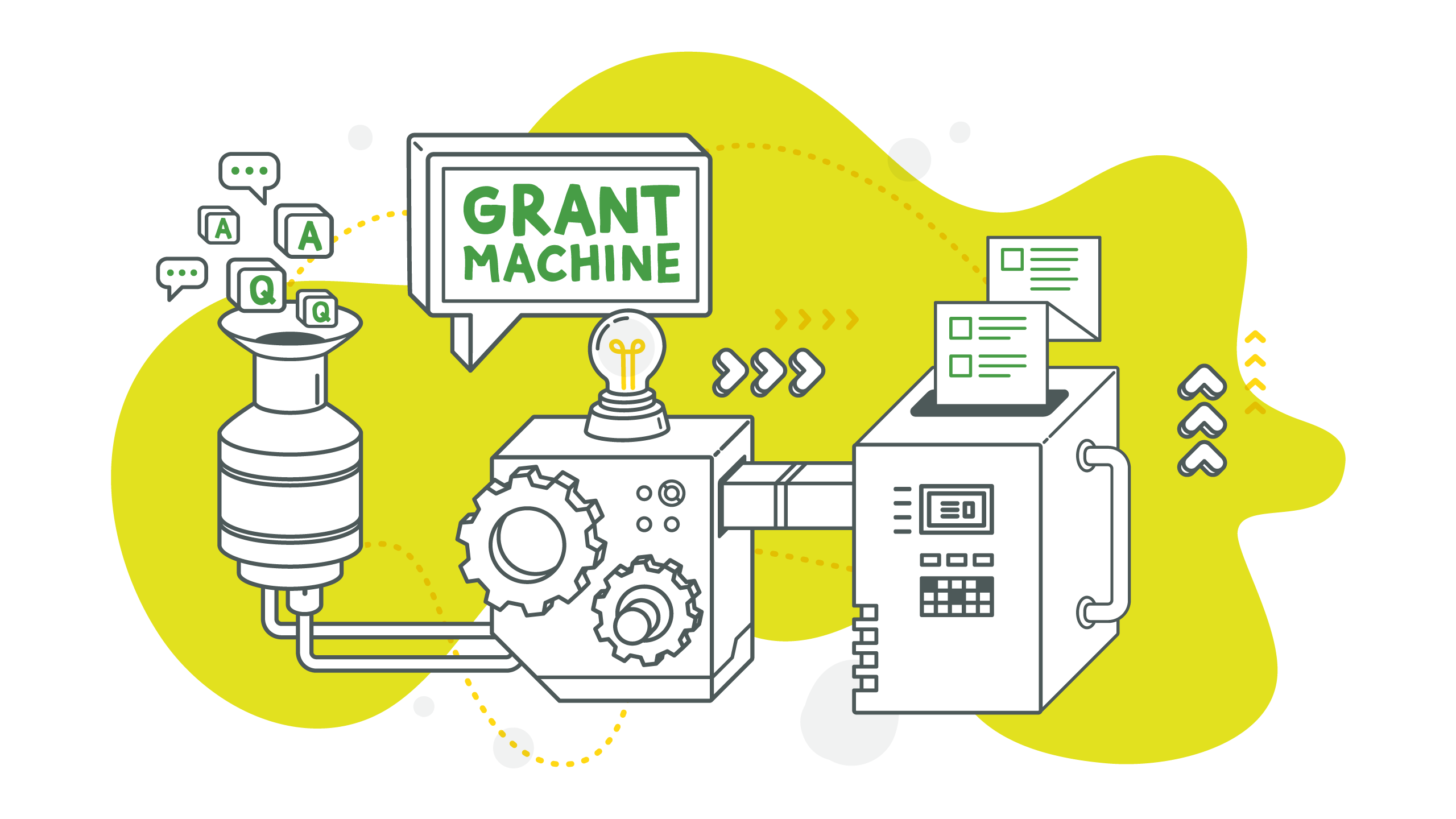Changefinder Suite and Its Marvelous Grant Machine

Ian Winbrock lives in the Whitaker, Eugene’s stalwart food, art, and counter-culture mecca. It’s also where some of the city’s least socially served live.
Using his background as a community builder, Winbrock is taking human knowledge to large language models.
“I’ve written loads of grants, so we have a sense of how paperwork translates into practice and how onerous this is to manage operations for an organization,” he said. “So we are here to help save time at scale for onerous paperwork.”
Developed during COVID, ChangeFinder is a suite of tools designed to help philanthropy, nonprofits, and communities more efficiently tackle the world’s most pressing challenges.
Winbrock recruited a team of five cofounders around Oregon and the world to develop the suite of services. Joining Winbrock, MBA ’23, in cofounding ChangeFinder are Madeline J. Tomka, MBA ’22, and Steven Paasch, MBA ’22, as well as Harry Herzberg (Oregon State University, computer science.)
One element of the ChangeFinder suite is the Grant Machine. Using large language models and artificial intelligence, the Grant Machine incorporates machine learning to help grant applicants improve submissions—upping their chance for funding success. Think of it like ChatGPT for the highly specific language of grants.



Grant Machine is a place where you can upload specific grant questions, answers, and ideas, and it provides high-level feedback and recommended changes based on a proven success model.
The result is a tool for mostly nonprofits, but also startups and public sector agencies, that improves the likelihood of grant application success.
“Earning $8,500 at the Oregon Innovation Challenge provided seed funding that made it so we were able to have comprehensive changes to the site and more seamlessly integrate our application protocol interface from the learning model that we use into the platform.”
—Ian Winbrock, MBA ’23, Cofounder, ChangeFinder
Grant Machine is a place where you can upload specific grant questions, answers, and ideas and it provides high-level feedback and recommended changes based on a proven success model.
The result is a tool for mostly nonprofits, but also startups and public sector agencies, that improves the likelihood of grant application success.
“Earning $8,500 at the Oregon Innovation Challenge provided seed funding that made it so we were able to have comprehensive changes to the site be able to more seamlessly integrate our application protocol interface from the learning model that we use into the platform.”
—Ian Winbrock, MBA ’23, Cofounder, ChangeFinder
The kind of student who comes to Oregon is there to launch creative ideas.
“We learned in our entrepreneurship courses that instead of having a waterfall form of development using the lean methodology, we launched a minimum viable product, a closed beta from our alpha product, and now we’ve reached the stage in late summer where we launched our open beta. We were part of their cohort of 2022, and we really feel like they’ve given us a lot of opportunities to engage with the community locally, investors, fellow entrepreneurs, and potential customers,” said Winbrock.

Winbrook and team are currently offering the product to select nonprofits, government agencies, or other startups with grant-funding needs as they enhance and refine the beta version of ChangeFinder. The long-term plan is a subscription model for users.



